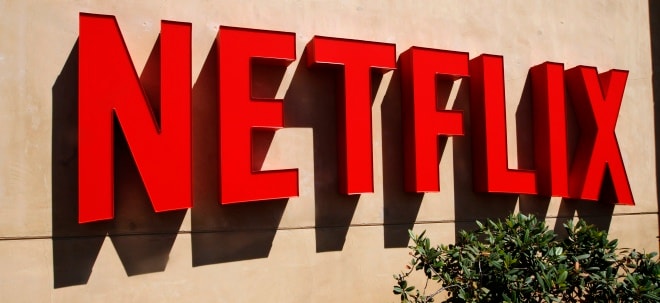World's First -- XellSmart's Allogeneic iPSC-derived Regenerative Cell Therapy for Spinal Cord Injury Officially Approved by the U.S. FDA for a Registrational Phase I Clinical Trial
SUZHOU, China, May 25, 2025 /PRNewswire/ -- In May 2025, XellSmart Biopharmaceutical (Suzhou/Shanghai) Co., Ltd. officially announced that XellSmart-developed off-the-shelf allogeneic iPSC-derived subtype-specific neural regenerative cell therapy has received official approval from both China's National Medical Products Administration (NMPA) and the U.S. Food and Drug Administration (FDA) for a Phase I clinical trial, to treat spinal cord injury (SCI) — a severe and currently untreatable disease of the central nervous system, affecting more than 15 million patients globally.
As the first regenerative clinical trial globally employing a subtype-specific neural progenitor cell therapeutic product to treat spinal cord injury, the study will be led by the Third Affiliated Hospital of Sun Yat-sen University, a nationally recognized leader in spinal cord injury treatment.
Spinal cord injury (SCI) is a globally prevalent neurological disorder. It represents a critical unmet clinical need, marked by a high rate of disability, irreversibility, early onset, and a significant burden on patients, families, and society. SCI primarily affects young and middle-aged adults, typically resulting from traffic accidents, sports injuries, or other traumas. As a condition that deeply affects a patient's social function, it requires lifelong care and rehabilitation, leading to a significant economic burden and heavy societal costs. Beyond physical disability, SCI patients often face severe challenges in employment, social integration, and mental health. In high-income countries, lifetime healthcare and caregiving costs per patient may exceedUSD 1 million, placing a heavy strain on both families and public health systems.
Worldwide, over 15 million people are estimated to suffer from spinal cord injury (SCI). This figure includes over 3 million patients in China and 300,000 patients in the US. Each year, China and the US report approximately 100,000 and 18,000 new cases of acute or subacute SCI — equivalent to nearly 10 and 2 new cases every hour, respectively.
SCI often leads to partial or complete paralysis, with the loss of motor and sensory function. Most patients experience permanent disability, severely compromising their quality of life. Due to the limited regenerative capacity of the central nervous system, nerve repair following SCI remains extremely challenging. Current treatments are largely limited to rehabilitation and supportive care, with no effective therapies available to promote neural regeneration during the injury phase.
Following over four years of rigorous development and preclinical studies, XellSmart has partnered with leading clinical experts in spinal cord injury to initiate the world's first registrational clinical trial of an off-the-shelf, allogeneic, iPSC-derived, subtype-specific, regenerative neural cell therapy for spinal cord injury. This pioneering trial represents a landmark achievement in the global effort to develop regenerative therapies for spinal cord injury. Committed to advancing breakthrough treatments, XellSmart aims to redefine possibilities for SCI recovery — bringing a new hope to patients in China and around the world, and delivering tangible relief to families and communities affected by this devastating condition.
For funding and BD cooperation, contact: BD@xellsmart.com
XellSmart has been dedicated to the development of clinical-grade, allogeneic, off-the-shelf iPSC-derived cell therapies for central nervous system (CNS) diseases that currently lack effective treatment options. Up until now, XellSmart has secured formal approvals from both China's NMPA and the U.S. FDA for seven registered and registrational clinical trials spanning China and the United States, for iPSC-derived cell therapies to treat CNS diseases — including Parkinson's disease (Approved Phase I in both China and US), amyotrophic lateral sclerosis (ALS; Approved Phase I in both China and US; Global orphan drug designation by FDA), and spinal cord injury (SCI; Approved Phase I in both China and US), hence pioneering breakthrough advancements in tackling major and severe CNS diseases:
In 2023, China's first iPSC-derived cell therapy (XS228 injection), developed by XellSmart, received FDA approval and was granted global orphan drug designation (ODD).
In 2024, China'sfirst national-level registered clinical study of iPSC-derived cell therapy for neurological diseases was approved to treat Parkinson's disease patients—including China'sfirst case. More than 12 months of follow-up demonstrated good safety and significant improvements in "off" time, MDS-UPDRS scores, and multiple non-motor symptoms.
In 2024, the world's first national-level registered clinical study of iPSC-derived cells (XS228 injection) for amyotrophic lateral sclerosis (ALS) was approved. Multiple ALS patients including the world's first case were treated safely, with preliminary data showing effective slowing of disease progression.
In 2025, China'sfirst allogeneic off-the-shelf iPSC-derived dopaminergic neural progenitor cell (XS411 injection) registrational Phase I clinical trial was launched, led by the National Neurological Disease Medical Center at Beijing Tiantan Hospital, targeting Parkinson's disease — the world's second most common neurodegenerative disorder.
In 2025, China'sfirst randomized, double-blind controlled registrational Phase I/II clinical trial was launched, led by Huashan Hospital affiliated with Fudan University (also a National Neurological Disease Medical Center), targeting early-onset Parkinson's disease (EOPD).
In 2025, the world's first registrational Phase I/II clinical trial of an allogeneic off-the-shelf iPSC-derived subtype-specific neural progenitor cell therapy (XS228 injection) was launched by Peking University Third Hospital, targeting amyotrophic lateral sclerosis (ALS), one of the world's four major incurable diseases.
In 2025, the world's first registrational Phase I clinical trial of an allogeneic off-the-shelf iPSC-derived subtype-specific neural progenitor cell therapy was initiated by the Third Affiliated Hospital of Sun Yat-sen University, targeting spinal cord injury (SCI), a major neurological disease.
XellSmart has established a fully dedicated, internationally competitive "All-In" team focusing on development of clinical-grade, allogeneic, off-the-shelf iPSC-derived cell therapies for central nervous system (CNS) diseases that currently lack effective treatment options. XellSmart has built a portfolio of proprietary, globally leading industrial technologies and platforms, fueling sustained in-house innovation centered on its core business. XellSmart has independently built and operates a R&D center, a B+A-grade GMP manufacturing facility and a quality control center with a total area exceeding 5000m2.
Multiple clinical-grade iPSC-derived cell therapy candidates developed by XellSmart have completed core CMC development, with fully integrated clinical-grade manufacturing processes and quality control systems in place. XellSmart has successfully produced clinical batches of multiple GMP-grade iPSC-derived subtype-specific neural progenitor cell therapies, currently deployed in multiple national, registered or registrational clinical studies and global clinical trials.
XellSmart has secured multiple rounds of financing, collectively led by renowned market-driven venture capital firms including Qiming Venture Partners, Eli Lilly Asia Ventures, Sequoia Capital China (Hongshan), and others.
For funding and BD cooperation, contact: BD@xellsmart.com
SOURCE XellSmart

